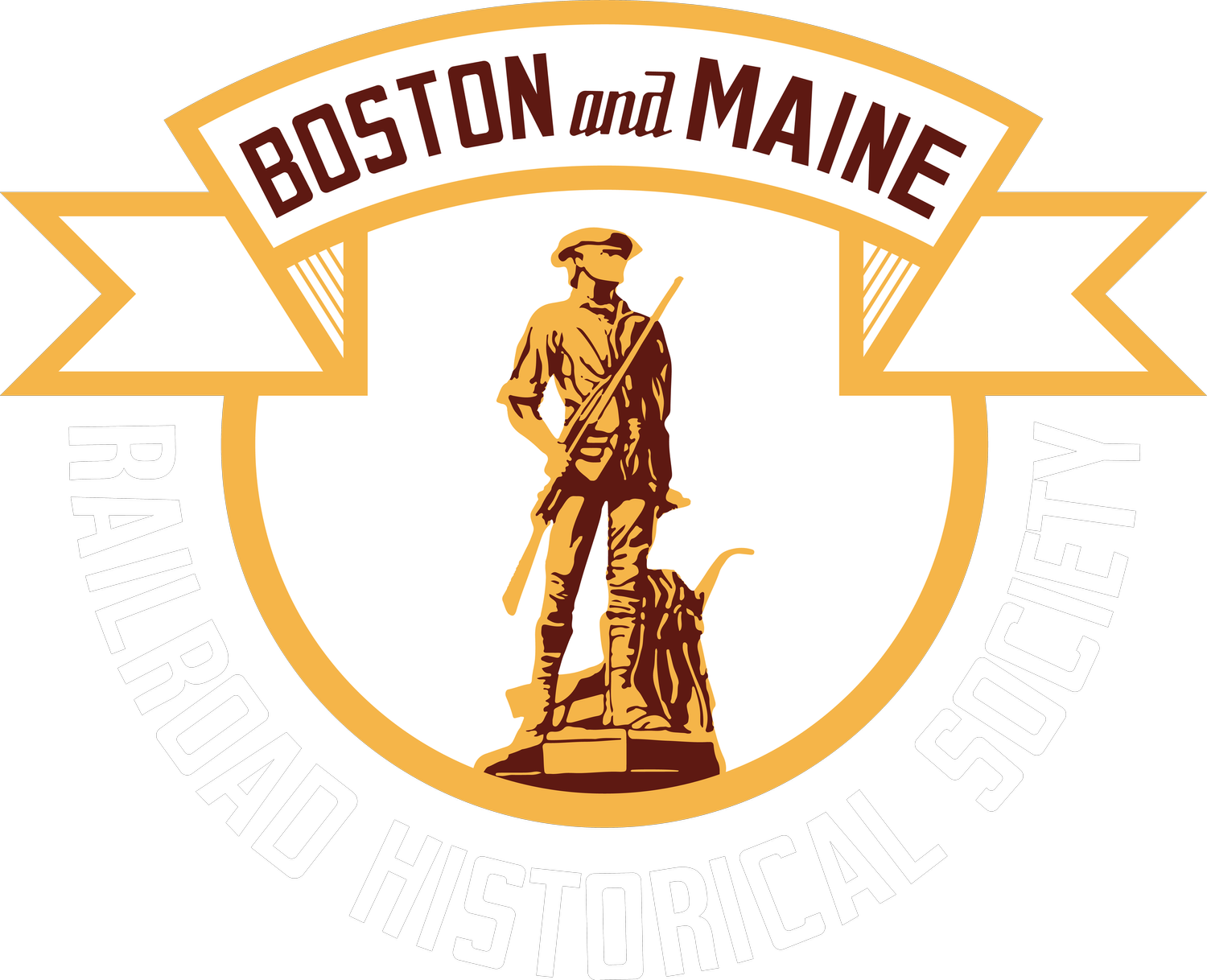High Green Episode 5: Mager Greenough Interview, 1988
B&M No. 3624 (4-6-2) Class P-2, sallies forth from the fortress-like Salem, MA depot. Wayne Brumbaugh photo. Digital image made from photograph in Boston & Maine Railroad Historical Society Archives. Cat. No. 2011.21.36. Gift of Preston S. Johnson who acquired binder of Brumbaugh photos from James P. McGill, former B&M train dispatcher. Copyright Boston & Maine Railroad Historical Society, Inc.
In this episode we feature an interview from 1988 conducted by B&MRRHS member Richard W. Symmes with retired conductor Mager Greenough (1923 - 1997), who worked for the Boston & Maine for 43 years starting in 1941. His stories focus mostly on his experiences working the Eastern Route between Boston, Salem, Portsmouth and Portland. Along the way Mager describes in great detail the life, humor, and everyday experiences of the railroad man during this last golden period of the B&M.
"There's never been a day when I didn't look forward to going to work" - B&M conductor Mager R. Greenough
(From the Salem Evening News., 1984.) “There's but one work to sum up the 43 years Mager R. Greenough of Danvers has spent on the Boston & Maine Railroad: Tradition. We wonder how many of today's young people can share the same experience; they find it exhilarating to wake up to a new day and a job they love. For most, it seems a drudgery. Mager Greenough never had that problem. For the past century there has been a conductor by the name of Greenough serving with the local railroad on a daily basis, and that tradition of service to the people of North Shore will end this month. The Greenough family has been as much of an institution as the railroad. And you have to understand that ever since Mager Greenough, now 61, was old enough to listen to the tick of a conductor's watch, he was prepared to follow the family tradition. Greenough closes out 43 years of service and it'll be the first time in 105 years that a Greenough hasn't been there to yell "all aboard", collect tickets and help to keep the railroad running on time. The tradition began in 1879 when Greenough's grandfather, also named Mager, started out on the Marblehead run, and he spent 51 of his 80 years working on the railroad. His portrait hangs at the Depot Restaurant in Beverly. Greenough's father, Clarence, was a conductor for 45 years, as was his uncle, Walter, for 32 years. Tradition. Greenough has seen the changes from steam engines to the diesels to the Budd cars, but the biggest change has come in the improvements in communications, specifically the radio. Trainmen no longer have to walk to a telephone along the line to talk with the tower. Radios provide instant communication and this has helped keep trains running on time. Mager Greenough is going to be missed when the 5:49 pulls out of Ipswich on the first morning in June , marking the first time in 105 years that a member of his family has not worked on the railroad. There is something to be said about tradition.”
